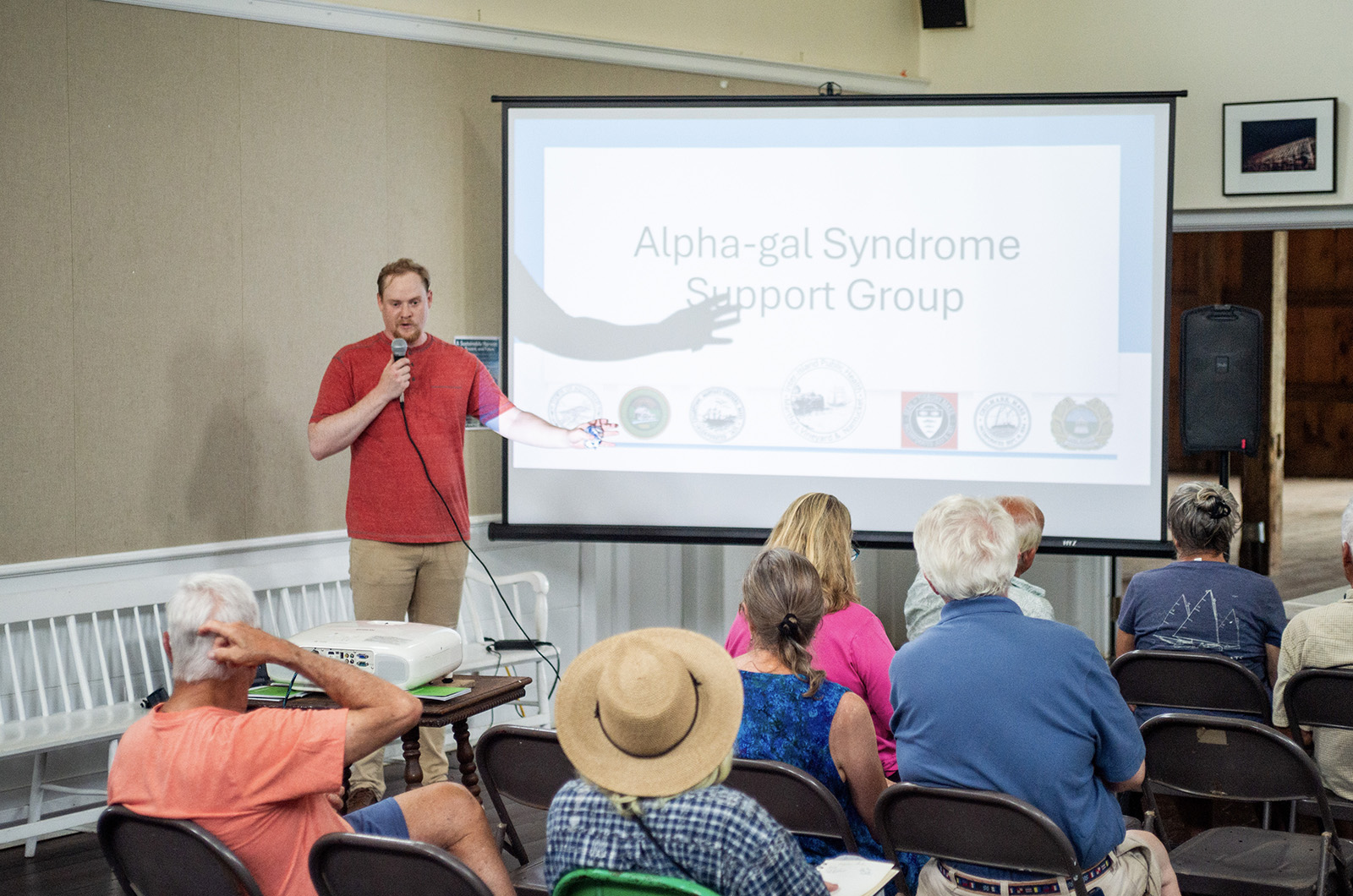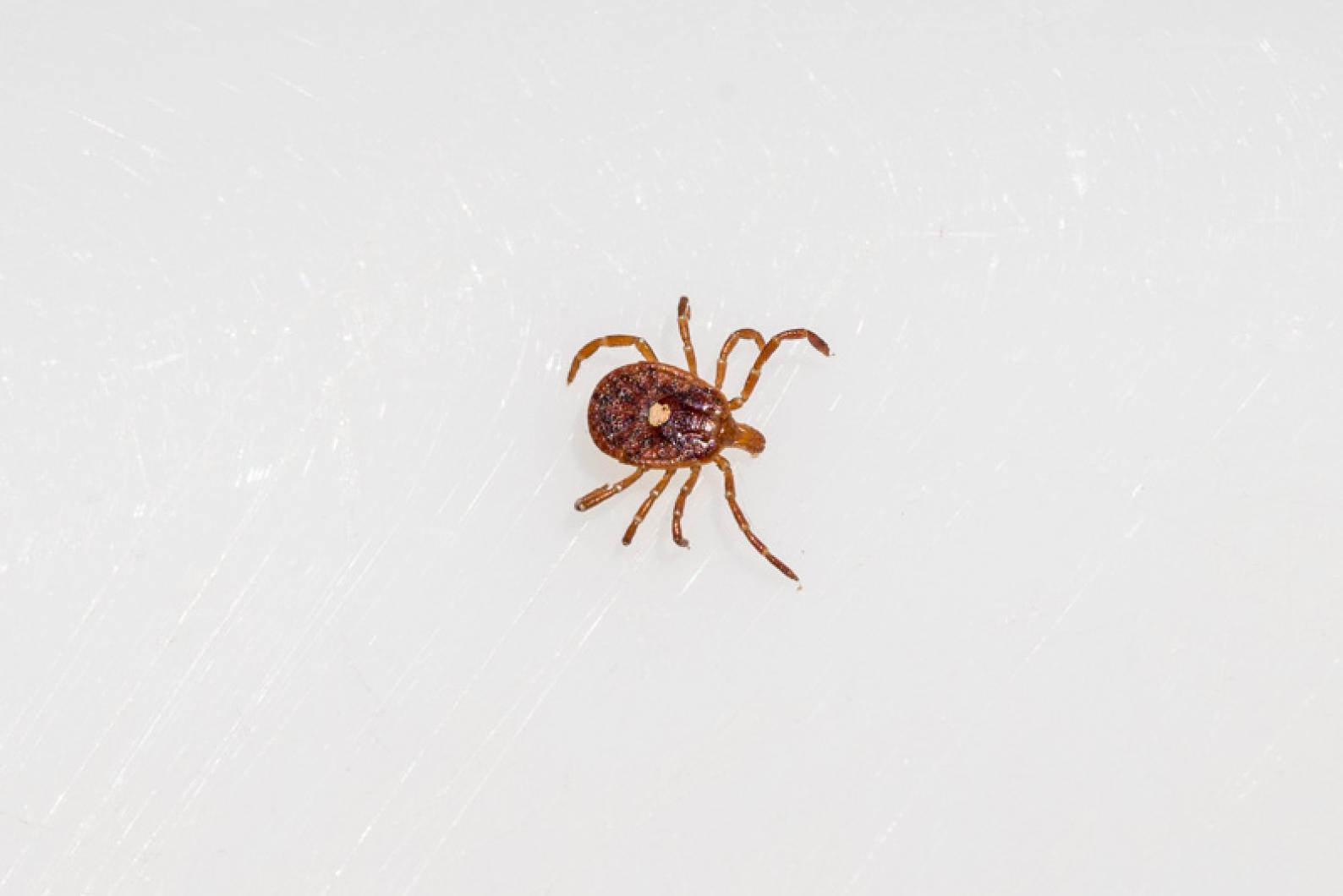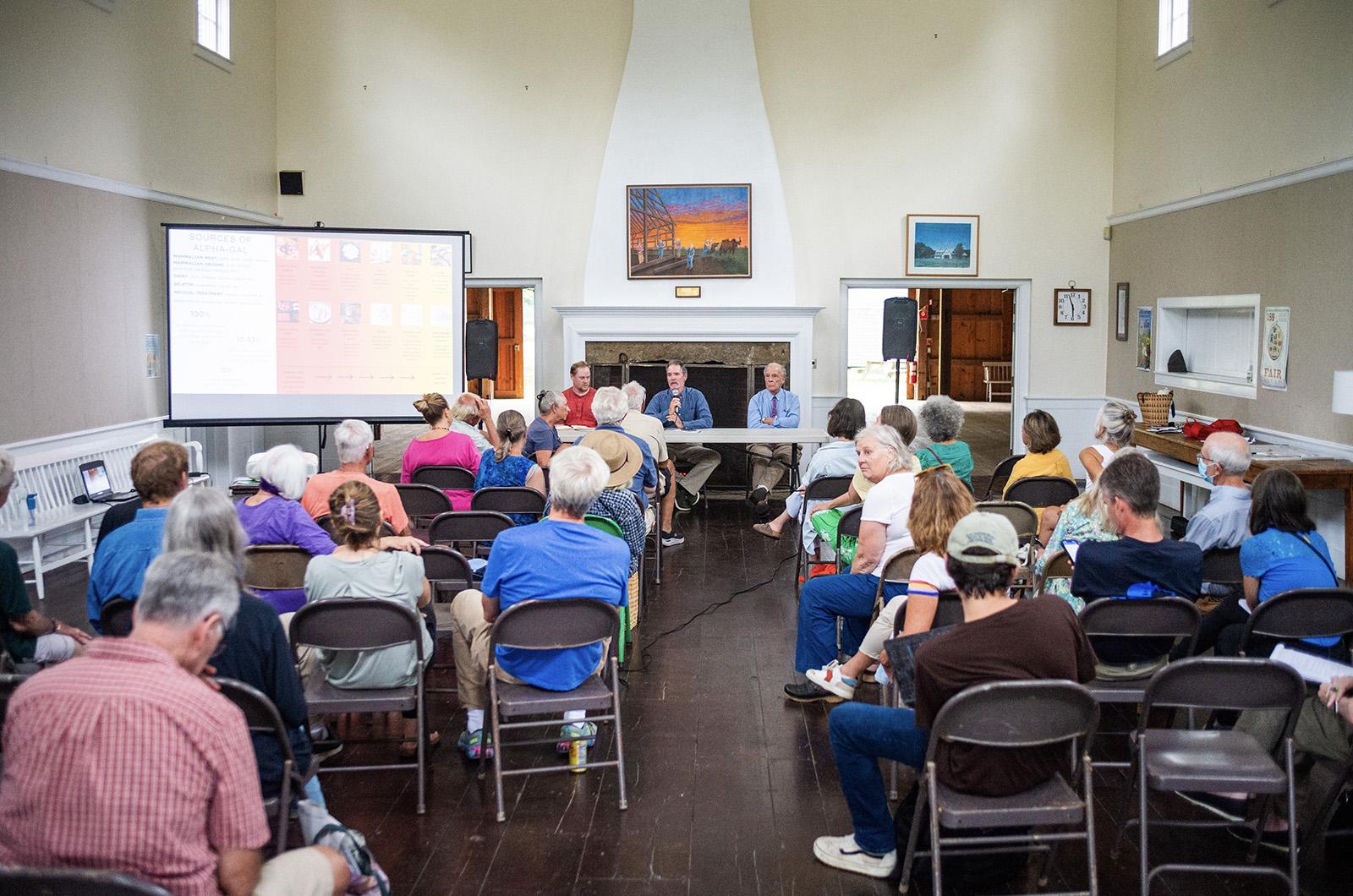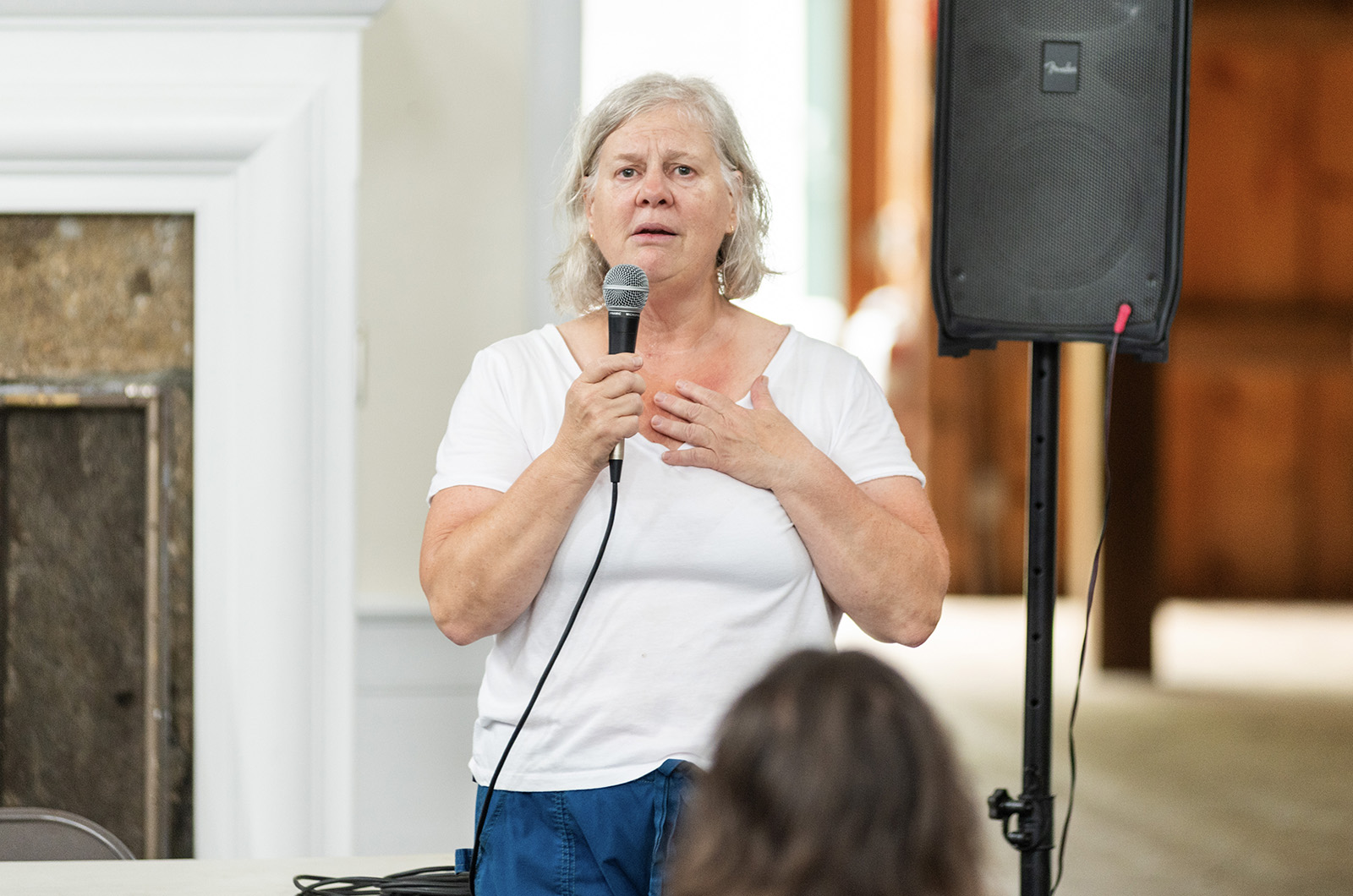A new support group on the Island hopes to offer community and medical support to the growing population of Islanders diagnosed with alpha-gal syndrome, a tick-borne allergy that leaves people unable to digest red meat.
The alpha-gal support group met for the first time last Wednesday, July 17 at the Agricultural Hall in West Tisbury. More than three dozen Islanders affected with the condition gathered with local tick and allergy experts to discuss doctors’ best understanding of the perplexing condition, and what those affected can do to minimize health risks.
Public health nurse Amelia Hambrecht and Island tick expert Patrick Roden-Reynolds started organizing the support group last summer, after hearing from more and more Islanders who wanted regular, reliable information.
“Alpha-gal being relatively new to the medical community… there wasn’t much support out there as far as tips or guidance of what to do, or a community of folks going through the same thing [as you],” Mr. Roden-Reynolds told the Gazette.

Unlike other tick-borne illnesses, alpha-gal isn’t caused by bacteria or a virus. Instead, it happens when a lone star tick bites someone, and their body triggers an immune response to the alpha-gal carbohydrate.
Usually the human body has no response to the compound, which occurs naturally in red meat. The next time the human body encounters that carbohydrate, that immune response kicks into overdrive, leading to an allergic reaction that can involve respiratory and digestive symptoms and, in severe cases, life-threatening anaphylaxis.
Since alpha-gal is an allergy, “there’s no real treatment other than avoiding things in your diet,” Mr. Roden-Reynolds said.
Mr. Roden-Reynolds opened last week’s support group with a brief discussion of tick behavior and ecology on Martha’s Vineyard. Lone star ticks, once only found at the edges of the Island, are now in every town.
With the tick spreading, the number of alpha-gal cases has risen, said Island allergist Ed Caldwell and physician Gerry Yukevich.
“I have over 250 in my practice who have diagnoses of alpha-gal sensitivity,” Dr. Caldwell told the group.
Across those patients, he has seen a wide range of sensitivity to alpha-gal. Some patients suffer from prolonged, intense sensitivity to nearly all mammalian products, down to the gelatin used in medicine capsules, Dr. Caldwell said. For other patients, sensitivity to alpha-gal can wane within a year.
“We get about 60 per cent of our propensity to be allergic from our genetics . . . If you are predisposed to allergy, particularly food sensitivities, you’re probably going to be at an extremely high risk of developing sensitivity,” Dr. Caldwell said.
Some may repeatedly find lone star tick bites and never develop a sensitivity, he said.
As research on alpha-gal progresses, these understandings could change, Dr. Caldwell noted.
Discussion at the support group ranged from questions about what food and medications were safe for those with alpha-gal to what could be done in Island schools to accommodate kids with alpha-gal.
The last five years have seen an explosion of alpha-gal syndrome on Martha’s Vineyard. As of mid-July, 149 people have already tested positive for alpha-gal syndrome at the Martha’s Vineyard Hospital this year.
In 2020, the hospital recorded just two confirmed cases of alpha-gal sensitivity. By 2022, that number had jumped up to 77. In 2023 it had doubled from the previous year.
Case numbers from the hospital likely underreport the total number of alpha-gal cases contracted on the Island, as summer visitors may contract the illness here and only receive testing or diagnosis when returning from vacation, experts said at Wednesday’s support group.
Ms. Hambrecht said that the group’s first meeting was a success, with strong attendance and nearly two hours of constant discussion.
“We’re thinking of meeting monthly, and we want to do different formats every month,” she said. “A panel like we had this month, maybe a cooking class a different month.”
Ms. Hambrecht also hopes that future meetings will be available over Zoom as well as in person.

Island resident Adriana Stimola, who attended the first meeting of the support group, said she heard about the support group from a family friend. She, her husband, and her two children all have been diagnosed with alpha-gal, she said.
“The organizers are really committed to figuring out what the group needs to be to serve the community,” Ms. Stimola said. “That was the most exciting aspect of it for me.”
Ms. Stimola hoped that future meetings could continue to discuss the science of the syndrome while working to “find some camaraderie in what is otherwise a pretty isolating experience.”
“Honestly, they should do an alpha-gal pot luck,” Ms. Stimola said. “I’m going to get really bored of chicken.”









Comments (6)
Comments
Comment policy »